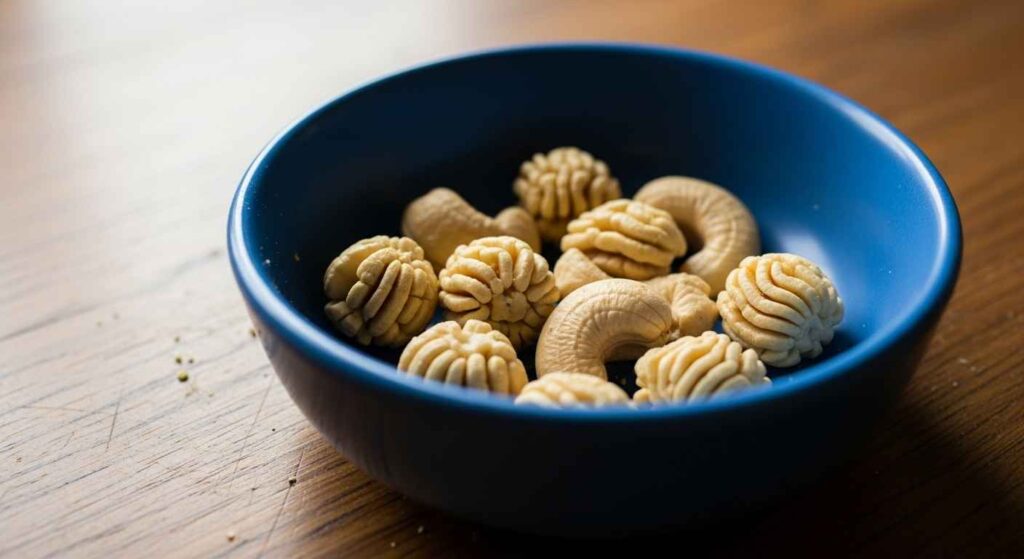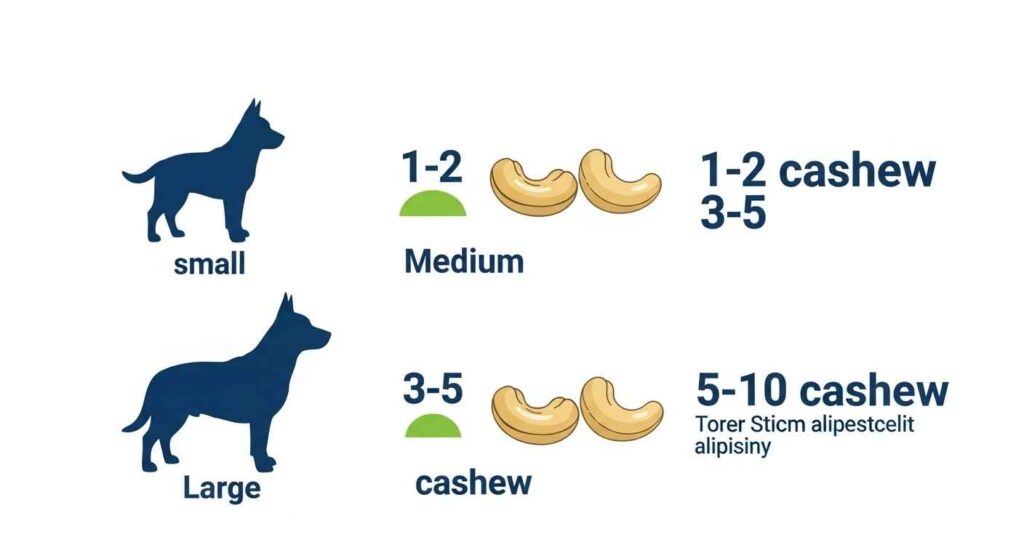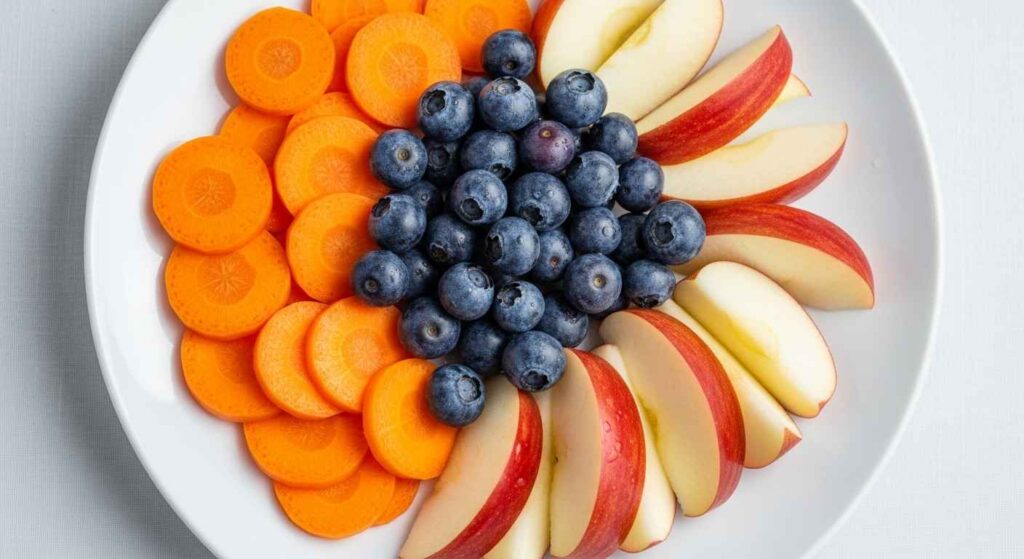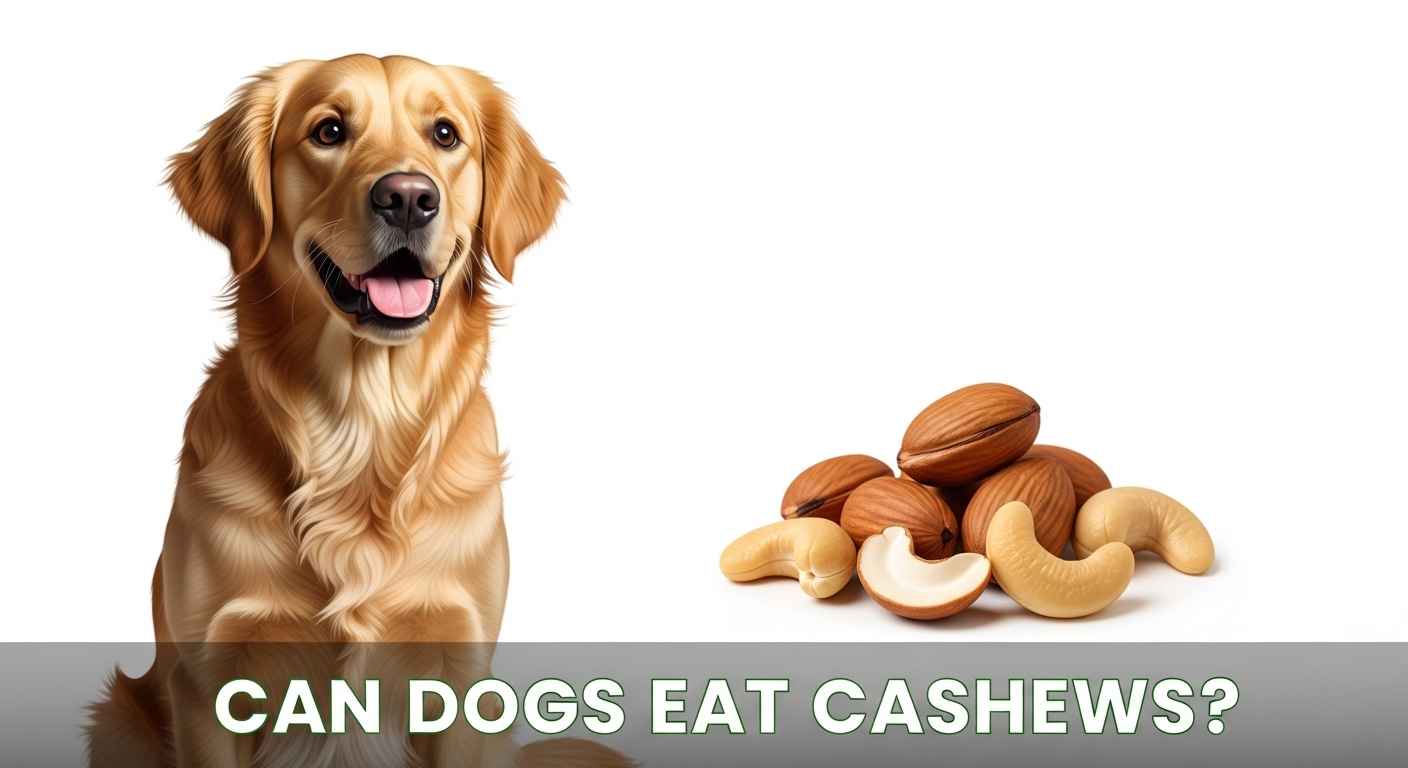Many dog owners ask if cashews are safe for their pets. The answer is yes, but only in small amounts. Cashews are not toxic to dogs and can be an occasional treat if given correctly. This guide explains the safety, benefits, and risks of feeding cashews to dogs. It provides clear, actionable advice to help you decide if cashews fit into your dog’s diet. Always consult your veterinarian before introducing new foods.
Are Cashews Safe for Dogs?
Cashews are seeds from the cashew tree, not true nuts like chestnuts. Unlike toxic macadamia nuts, cashews are generally safe for dogs when plain and unsalted. Raw cashews may contain a mild toxin, so roasted ones are safer. Use our pet food safety checker to confirm if human foods like cashews are okay for your dog.
Cashews are high in calories, with one nut containing about 10 calories. Treats should make up no more than 10% of your dog’s daily calorie intake. For a 20-pound dog needing around 400 calories daily, that’s roughly 2-4 cashews at most. Always check with your vet, especially if your dog has health issues.
Benefits of Cashews for Dogs
Cashews offer some nutritional value. They contain protein for muscle health, fiber for digestion, and healthy fats for a shiny coat. Minerals like magnesium support strong bones, while zinc boosts immunity and copper aids joint health. These benefits are minor, as dogs get most nutrients from balanced dog food. Cashews can be a tasty, occasional treat but shouldn’t replace regular meals.
- Protein: Supports muscle growth and repair.
- Fiber: Promotes healthy digestion.
- Magnesium: Strengthens bones.
- Zinc: Boosts immune system.
- Healthy fats: Improves coat and skin health.
For other nutritious treats, read our post on what fruits can dogs eat.
Risks of Feeding Cashews to Dogs
While cashews are safe in moderation, they pose risks if mishandled. The high fat content is the biggest concern, potentially causing stomach upset or more serious issues.
High Fat Content
Cashews are high in fat, which can lead to pancreatitis, a painful condition where the pancreas becomes inflamed. Symptoms include vomiting, diarrhea, abdominal pain, and lethargy. Overweight dogs or those prone to pancreatitis face higher risks. Regular overfeeding can also cause obesity, leading to diabetes or joint problems.
Salt and Seasonings
Salted or seasoned cashews are risky. Too much salt can cause excessive thirst, dehydration, or sodium toxicity, with symptoms like tremors or seizures. Avoid flavored varieties like honey-roasted cashews, as added sugar harms teeth and contributes to weight gain. Stick to plain, unsalted nuts.
Choking Hazards
Whole cashews can be a choking hazard, especially for small dogs, due to their size and shape. Chopping them into smaller pieces reduces this risk. Always supervise your dog while they eat cashews.
Allergies and Other Concerns
Allergies to cashews are rare in dogs but possible. Watch for signs like itching, swelling, or hives. High phosphorus levels in cashews may contribute to bladder stones in some dogs. Moldy cashews can also cause digestive issues or toxicity. If your dog shows unusual symptoms, use our pet symptom checker to assess their condition.

How Many Cashews Can a Dog Eat?
Portion size depends on your dog’s weight. Small dogs (under 20 pounds) can have 1-2 cashews. Medium dogs (20-50 pounds) can have 3-5. Large dogs (over 50 pounds) can have up to 10. Limit treats to once a week and start with just one nut to test tolerance.
Puppies need even smaller amounts due to sensitive stomachs. Use our pet age calculator to tailor portions to your dog’s age and size.
How to Feed Cashews to Your Dog
Choose plain, unsalted, roasted cashews. Raw cashews may have toxins, so roast them at home if needed. For small dogs, chop nuts into tiny pieces to prevent choking. Cashew butter is a good alternative—make it by blending unsalted cashews with a touch of honey. Avoid store-bought versions with xylitol, a toxic sweetener for dogs. Spread cashew butter in a toy like a KONG for mental stimulation.
Cashew milk is safe in small amounts if unsweetened and free of additives. Always introduce new foods slowly and monitor your dog.
For more treat ideas, check our guide on can dogs eat broccoli.

What to Do If Your Dog Eats Too Many Cashews
If your dog eats too many cashews, watch for vomiting, diarrhea, or lethargy. Offer plenty of water and withhold food for 12-24 hours to rest the stomach. Contact your vet if symptoms persist or worsen. For salted cashews, sodium toxicity is a concern—seek help immediately if you notice tremors or seizures.
If cashews were mixed with toxic nuts like macadamias, call your vet right away. Macadamia poisoning causes weakness, fever, or tremors.
For external resources, visit the American Kennel Club’s guide on dog nutrition for a list of toxic foods.
Other Nuts Dogs Should Avoid
Some nuts are dangerous for dogs. Macadamia nuts are toxic, causing vomiting, weakness, and fever. Walnuts and pecans may contain mold toxins, leading to digestive upset. Pistachios are high in fat and often moldy. Peanuts are safe in moderation but avoid flavored varieties.
For more on risky foods, see our post on can dogs eat bacon.
Better Snacks Than Cashews for Dogs
Healthier treats include dog-safe fruits and vegetables. Carrots offer crunch and low calories. Apples (without seeds) provide fiber. Blueberries deliver antioxidants. Watermelon is hydrating and low-calorie. These options are safer and less fatty than cashews.
To match treats to your dog’s needs, try our pet breed finder quiz.
People Also Ask: Common Questions About Cashews for Dogs
- Can dogs eat cashew butter? Yes, if it’s plain, unsalted, and free of xylitol. Use sparingly due to high fat content.
- Are salted cashews bad for dogs? Yes, excess salt can cause dehydration or sodium toxicity. Stick to unsalted.
- Can puppies eat cashews? In very small, chopped amounts, but their stomachs are sensitive, so consult a vet.
- What if my dog eats mixed nuts? Check for toxic nuts like macadamias. Contact your vet if unsure.
For related reading, explore these Petfel posts:

Conclusion
Cashews can be a safe, occasional treat for dogs when given in moderation. Choose plain, unsalted, roasted nuts and limit portions to avoid health risks like pancreatitis or obesity. Always supervise your dog and start with a small amount to check for reactions. For personalized advice, consult your vet. Healthier treat options like carrots or apples may be better choices. Use our pet food safety checker to keep your dog’s diet safe and balanced.
